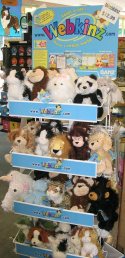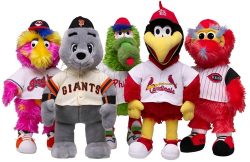Target Young Fans Using Technology!
 Tuesday, March 25, 2008 at 08:00PM
Tuesday, March 25, 2008 at 08:00PM  The majority of professional organizations and athletic departments stimulate the attention and interest of young fans through Kids Clubs. Teams usually support these initiatives by providing kids with a magazine subscription, a chance to receive premium items, and limited entertainment opportunities. However, sports representatives may want to consider making a greater effort to target and engage young fans using technology.
The majority of professional organizations and athletic departments stimulate the attention and interest of young fans through Kids Clubs. Teams usually support these initiatives by providing kids with a magazine subscription, a chance to receive premium items, and limited entertainment opportunities. However, sports representatives may want to consider making a greater effort to target and engage young fans using technology.
Recent results from a study conducted by The NPD Group reveal that kids are starting to use technological devices at earlier ages. The study analyzed the habits of children living in the U.S., Britain, Germany, and France and revealed insights into the average age that U.S. kids start using technology:
- Desktop Computers - 5.5 years of age
- Video Game Consoles - 5.9 years of age
- Video Game Portable Systems - 6.2 years of age
- Laptop Computers - 7.1 years of age
- Digital Cameras - 7.9 years of age
American kids were the youngest of their global counterparts to use each of the items listed above. The popularity of technology among young consumers is directly seen through the booming popularity of two companies, Webkinz and Build-A-Bear. As a sports property representative, why not take advantage of this?
Property representatives should consider:
 Offering promotional items similar to Webkinz and Build-A-Bear to draw more families through the turnstiles
Offering promotional items similar to Webkinz and Build-A-Bear to draw more families through the turnstiles- Incorporating Webkinz and/or Build-A-Bear produts/shops into their venue experience (see Build-A-Bear's existing MLB presence below)
- Creating brand extensions for existing merchandise that incorporates a virtual component
- Enable consumers who purchase plush toys of players to interact with other users in a virtual environment (where they can develop profiles, play games, etc.)
- Upon purchase of a stuffed animal, create a virtual environment where fans can become the team mascot and partake in virtual activities/games
About Webkinz - Webkinz are stuffed animals that come with a special code on their labels that allow purchasers to access a "Webkinz World" where kids have a virtual version of the pet that they can use to interact with others (there is a smaller version of Webkinz called Lil' Kinz). With two (2) million Webkinz products sold and one (1) million users registered in the "Webkinz World", the company's demand levels have drawn comparisons to the Beanie Baby craze of the 1990s.
About Build-A-Bear - Build-A-Bear is an American retailer that sells customized teddy bears and other stuffed animals. The retailer recently created an online virtual town called "Build-A-Bearville" where users can play games and interact with one another in a safe environment. Like Webkinz, users can bring their purchased stuffed animals to life using a special code found on the bear's berth certificate.
Build-A-Bear has existing roots in baseball - "Make Your Own Mascot" stores are located in Citizens Bank Park (Phi), Jacobs Field (Cle), Great American Ballpark (Cin), AT&T Park (San Fran), Nationals Park (D.C.), Fenway Park (Boston), and Busch Stadium (St. Louis). From a premium standpoint, Build-A-Bear plush toys were distributed in McDonalds Happy Meals in 2006 and 2007.

Reader Comments